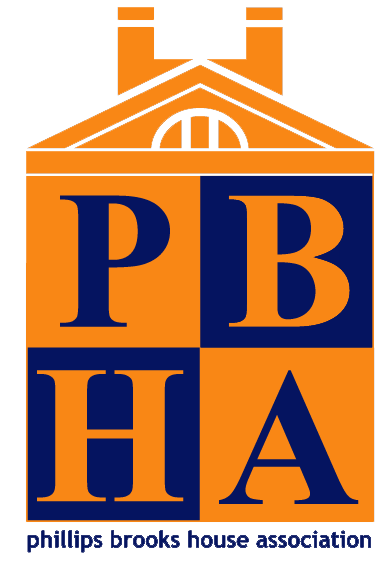Story #117: Van Le Reflects His Personal Journey on Meeting the Moment
The following is a transcript from Van Le’s “Mini Ted Talk” at PBHA’s Alumni Weekend on Nov. 9th, 2024.
Hello everyone, I’m Van Le, and it’s truly wonderful to hear David speak because our work, about a generation later—around 10 years after his—really followed in the same path. I was involved with the Cambridge Youth Enrichment Program (CYEP). The summer before my freshman year began, I was recruited to work at CYEP, and I ended up staying for four summers, working as both a camp counselor and a director. That’s how I became involved.
When I think about “meeting the moment,” I remember coming to America in 1975 at the age of 8. I’m 32 now—don’t ask me how that happened, but I was just a kid in a family of nine children, plus my grandmother, so there were 10 of us. We lived in a three-bedroom apartment in Austin, Brighton. It was the mid-70s, and the Vietnamese "boat people" had started to settle in Austin, in part because rents were low. Over time, though, as more Vietnamese families came in, they started migrating to Dorchester, leaving Austin with an increasingly diverse community. Life was tough back then. There was limited access to jobs, language barriers were a challenge, and though there were a few Cambodian families, most of the newcomers were Vietnamese.
Fast forward a few years, and somehow, I got into Harvard. I still can’t quite believe it, and I don’t know if I’d be able to get in today, but back then it felt like a miracle. I brought my experience of growing up in Allston-Brighton with me when I joined the CYEP. I had the privilege of working closely with the kids and families there, especially those who lived in the Jefferson Park Housing Development. We had to fight for that housing. The Cambridge Housing Authority claimed there were no spaces, but the families insisted otherwise, and we pressed them. I remember confronting the city manager at the time, Bob Healey, who was, at best, begrudgingly supportive. Harvard students coming in to stir things up with housing issues wasn’t exactly what the city wanted, but we pushed on.
Once we secured the housing, it was a matter of building relationships with the families and the kids. Looking back, it was a time when we could do things that might seem unbelievable today. We took kids on trips to Montreal and Washington, D.C. I vividly remember a moment when little Junior Prophet, looking up at the Lincoln Memorial, asked, "Are we still on Earth? This place is so beautiful!" I also recall Henry Hernandez, one of our kids, when we stopped at a small town north of Montreal. We were in a restaurant with 19 kids and two camp counselors. The waiter, seeing so many Asian kids, asked, "Are you all in one family?" Henry smiled and said, "Yeah, we’re one big family." Those were the kinds of moments that stayed with me.
I think the success of the summer programs came down to being genuinely embedded in the community, being a stable presence in the kids’ lives. We weren’t just offering a program; we were part of the families, part of their world. We took pride in that.
In the early days, I teamed up with Nan Trong, who was the real driving force behind the program, the first director. I was more like a co-founder. Together, we saw a real need to help refugee children, particularly because there was a debate in the public school system about whether to offer bilingual education or immersion programs. If you were a Vietnamese refugee, recently arrived after the war, immersion was tough—you were already at a significant disadvantage. In our neighborhood, my sister worked as a teacher at Jackson Mann Elementary in Allston-Brighton. She told me that the refugee kids were really struggling, falling behind in school. That’s when we decided to step in and create a program to help them, much like what David described, based on the model of experiential learning and community engagement.
So, we set up a proposal for a program targeting refugee kids. There were no summer camps or after-school programs for them, and they kept to themselves, isolated from the broader community. With help from PBHA, we got the program off the ground, initially serving about 50-60 kids that first summer. We didn’t have the internet back then, so it was all about grassroots organizing—knocking on doors, passing out flyers, reaching out to local businesses. It was like community organizing. Thankfully, Harvard University and the Business School lent their support, helping us secure housing and funding, which really allowed us to get the program rolling.
The program was built on the idea of experiential learning, but we also recognized that the refugee kids needed special attention with their English language skills. So, we designed a curriculum that combined academics and recreation, ensuring that the kids received the support they needed to succeed. Over the years, the program grew, and today, it’s still going strong. Thank you so much for continuing that work. Looking back, I’m proud of what we were able to achieve, and I’m grateful for the environment we had at that time—supportive, open, and willing to try new things. Thanks to that, we were able to pursue our dream of helping these kids and meet the moment in a way that made a lasting impact.
Thank you.
Watch the recording of Van Le’s speech here.
